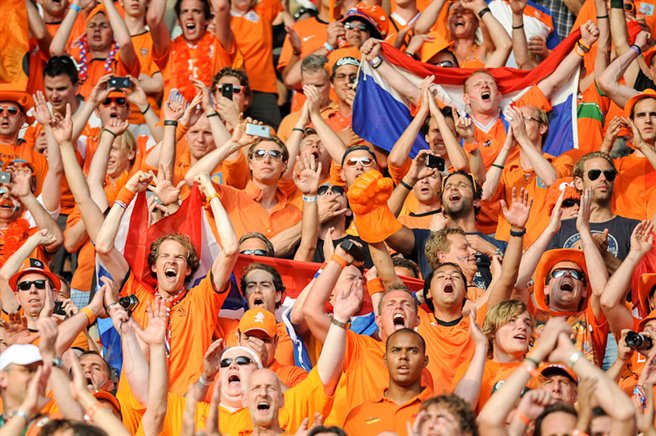What makes the Dutch… Dutch? Is there an identity? And what’s with all this English making it’s way into the Dutch daily language? (yeah, sorry Holland, we don’t help!)
A major study by The Social and Cultural Planning Office has concluded that the purity and prevalence of the Dutch language is waning, despite it being rated as the most important factor to Dutch culture (yes even more than Sinterklaas..)
The power of structural quirks
We all know language is important DutchReview but can you give me an example?!
Many languages have grammatical gender. For example, “Bridge” in German is feminine but it is masculine in Spanish. Studies show that German speakers are more likely to describe a bridge as “beautiful” and “elegant” and stereotypically feminine words whereas Spanish speakers are more likely to describe a bridge as “strong” or “robust” and stereotypically masculine words. Language has a profound shape on how we construct reality, so it is unsurprising the Dutch are getting annoyed by the prevalence of English.
A coffee with a side of English?
There are concerns that the hospitality industry in the Netherlands is compromising the Dutch language. It is unsurprising given hospitality is an easy transition job for tourists and students who have just made the move to the Netherlands.
Paul te Grotenhuis, spokesperson for trade organization INretail, thinks this is an inevitable outcome. He comments “English is the first alternative if it is not possible in your own language. Amsterdam is a prime example: if your largest target group are non-Dutch speakers, you respond to that as a store.”
Take a leaf out of Iceland’s book?
Linguistic purism is a policy of creating native-words to replace foreign words. Iceland began the practice in early 19th century by replacing Danish words with new Icelandic words. Nowadays, the Government targets English words which have crept into the Icelandic vocabulary. Linguistic purists believe any topic should be able to be spoken about in the native language, no matter how technical.
On the flip side…
The English Proficiency Index ranks the Netherlands as having the second-best English a non-native English speaking country. I’m not surprised given my Dutch friends are constantly using words I have to put into a thesaurus…
What do you think? Is it unavoidable that languages will change? Or should a hard-line be taken to preserve a native language?



“Iceland began the practice in early 19th century by replacing Danish words with new Icelandic words. Nowadays, the Government targets English words which have crept into the Icelandic vocabulary”.
I’d be very cautious with such workarounds. The fascist regime in Italy used to impose such linguistic restrictions in the 1930s. The results were some curious idiosyncrasies that we consider grotesque today – people had to use the mouthy word “lungometraggio” instead of “film”, or “musica sincopata” instead of “jazz”. Unfortunately that rule survived all the way into modern-day Italy, in some contexts. For example the titles of university courses still have to be in Italian, even in the anglo-friendly world of engineering and business faculties. I still remember my classes of “Disegno tecnico assistito dal calcolatore” (another mouthy post-fascist term for “CAD”), or “Programmazione di elaboratori elettronici” instead of “Computer programming”.
France has gone through similar waves of local language pride, and today the rest of the world laughs at them when they still insist to use the word “octet” instead of “byte”, or “ordinateur” instead of “computer”.
The majority of the people will eventually use words from whichever vocabulary they find the most expressive and effective for their communication purposes. If the local language can offer such features of expressivity and mutual intelligibility, then they’ll use the local language. Otherwise, they’ll just use English, or mint an English-inspired neologism in the local language to express the new concept. And the government can do nothing to prevent it: on the contrary, any attempt of the government to incentivise people to use the local language will only produce grotesque results, because language evolution happens through every-day communication, not by government intervention.
I do not agree with this last statement. In the NL, the government is pushing English like crazy. Children learn English from 4 years old. Universities teach almost exclusively in English. There are no language laws about advertisements or products in shops. Almost 100% of the music is in English, children hardly read books anymore and play computer games all the time. Most movies come from USA (no dubbing but subtitles). More and more English language schools appear. We are surrounded by English permanently. Dutch language skills are falling apart and nobody seems to care. Why is the Dutch language being destroyed so deliberately?